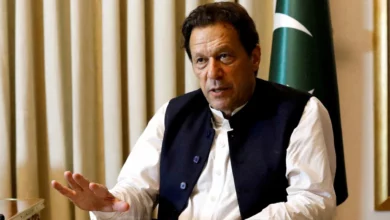The corruption case of former Minister of Housing Mohsamed Ibrahim Suleiman made headlines today, particularly in the opposition and the independent press, perhaps as a showcase of the fact that impunity is no longer the rule among public figures.
Al-Wafd reported that investigations have revealed that both the past and present ministers were involved in illegally allocating land. Al-Dostour, on the other hand, offered more details of the investigation, saying that the prosecutor has found that Suleiman allocated a 100 feddan plot of land to a businessman during his term as housing minister. The businessman bought the land for LE50 to LE70 per meter and then resold it at LE3000 per meter, according to Al-Dostour.
Al-Dostour added that a “sovereign party” has demanded to access to the case file along with all associated details of the case. Al-Shorouq spiced up the news about Suleiman by reporting that three of the individuals under investigation in the case had previously been arrested on allegations of bribery. These three are businessmen who sit on the boards of major ubranization and tourism projects in Cairo, according to Al-Shorouq.
Al-Khamis, an independent weekly, opted to re-publish an interview with Suleiman conducted by Editor-in-Chief Amro al-Leithy. Suleiman made some explicit–and damning–statements during the interview. “Yes, I allocated lands and villas to my wife and children. The law gives me the right to allocate a residential and a beach flat to my minor son. The minister’s son has the right to buy anything from the government just like the son of the minister of electricity and the minister of subsidized provisions,” said Suleiman in the interview, which was run on the front page.
Meanwhile, a meticulous search for news about Suleiman in today’s edition of the government-run Al-Akhbar turned up nothing.
The H1N1 virus, otherwise known as swine flu, also made headlines today, though the news wasn’t about how fast the virus is spreading, but rather how it has become an example of government failure. On its front page, Al-Shorouq delivered an interesting anecdote about a car roaming the east Cairo district of Moqattam with a loudspeaker, announcing, “Boycott the unknown vaccinations. Join us so our children do not become a laboratory for experiments,” and “Let them do their experiments on others. All parents need to report schools that try to vaccinate their children.”
The unknown campaign against swine flu vaccine, said Al-Shorouq, prompted by a conspiracy that the government is trying to kill its people. Another statement from the loudspeaker was heard as saying, “This is the new way to limit the population expansion. It seems that your memory is getting weaker. Don’t you remember the cancer-causing pesticides that affected many of our children? Who can guarantee to us that this misery won’t be repeated?”
The chief government-paper Al-Ahram was not much friendlier to the government in its one page report on swine flu, albeit it didn’t go as far as to endorse the conspiracy theory. Al-Ahram protected itself from criticism by focusing on taking stock of the former minister of education’s term. Youssry el-Gamal was replaced by Zaki Ahmed Badr in last week’s cabinet reshuffle.
“The ministry has dealt with swine flu in schools with the rationale that as long as there are working water taps, than there is no need to worry,” wrote Al-Ahram reporter Labib al-Sebai. “The ministry, alongside its minister, are from Mars,” he continued. The report went on to describe the chaos in both public schools and universities, where Al-Ahram says no proper action has been taken by the minister.
Al-Shorouq didn’t shy away from criticizing the current minister, bringing up an anecdote from his previous career. Badr, who used to preside over Ain Shams University, Egypt’s second largest public university, reportedly beat up a student once, and has intensely used the school’s security to tame any trouble on campus. Al-Shorouq added that Badr denied those allegations in a televised interview.
As usual, Al-Akhbar opted to stay on the government’s good side by reporting about efforts to combat swine flu. In today’s paper, Al-Akhbar reported that the city of Suez has secured 1000 doses of the vaccination, which will be given to the most vulnerable, including those with heart diseases, respiratory diseases, and diabetes. The head of Suez’s health administration was quoted as confirming that the vaccines are safe. In another story on the same page, a reporter wrote that people in Alexandria have been increasingly keen to take free vaccinations, reversing looming doubts about their safety.




